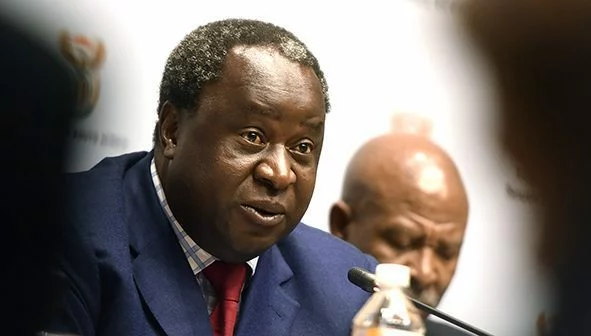Bailout conditions for state entities are ignored
Finance Minister Tito Mboweni will have an unenviable task of convincing the markets that government has a credible plan to rein in its runaway debt when he tables the medium-term budget policy statement, popularly known as the mini-budget, later this month.
The country’s fiscus has been hamstrung by the ballooning debt of the state-owned enterprises (SOEs), chief among them power utility Eskom, which has seen its debt surge in the past decade despite “stringent” conditions that are attached to what has become regular government guarantees.
The government’s guarantee exposure increased from R63.1-billion in 2008/09 financial year to R372bn in the 2018/19 fiscal year mainly as a result of new guarantees to Eskom, SAA, the South African National Roads Agency (Sanral), SABC and Denel in the period. Guarantees to state-owned companies amount to R529.4bn, with Eskom accounting for 55.7%.
A guaranteed loan is a loan that a third party guarantees in the event the borrower defaults. The National Treasury prides itself on exercising tight controls over the public purse.
But this week it admitted that the conditions it has attached to government guarantees to SOEs have been ineffective over the years.
“We attribute this primarily to the fact that the conditions are set as an ongoing obligation for the entity to fulfill after the guarantee has already been provided. The approach is now also focusing on setting conditions precedent to the granting of guarantees,” the Treasury said.
When asked if the department monitors guarantees provided to state-owned entities and takes remedial action when required, the Treasury
said it does.
“Interventions are carried out during monitoring committee meetings. Successful intervention has typically been by way of setting conditions precedent to further extension of guarantees or renewal or extension of existing guarantees.”
Government was at it again this week, parading 28 conditions that Eskom must meet before it releases the latest multibillion-rand bailout.
Some of the conditions include daily updates of its cash position.
However, Eskom’s management is very much aware that even if the utility doesn’t meet the plethora of conditions, chances are government will still have no option but to give it more bailouts due to its role in the economy.
The utility generates approximately 90% of the electricity used in South Africa and a default on its debt would have a ripple effect on the economy.
According to government policy, SOEs should operate on the strength of their own balance sheets.
However, if a clear need for government support is identified, a guarantee to provide security for borrowing can be considered, provided that
a sound business plan is in place to ensure long-term financial sustainability.
The conditions government generally imposes typically include a requirement that a public entity in financial difficulty must prepare a detailed plan to return the business to financial sustainability without government support.
North West University Business School economist professor Raymond Parsons said if the bailout process is to avoid degenerating into a bottomless pit, the Treasury has to strictly enforce the conditions it attaches to such bailouts.
“The SABC, for example, still has to implement certain additional decisions in the months ahead to qualify for the second tranche of its bailout. In other instances, chief restructuring officers have either just been appointed, or in some cases still have to be identified,” Parsons said.
Most of the SOEs are financing their operations with debt, with capital spending also financed primarily by debt.
There is little contribution from operating cash flows.
In 2015, the government took the extraordinary step of selling its 13.91% stake in Vodacom to the Public Investment Corporation to help fund the R23bn allocation to Eskom. The stake is today worth more than R30bn.
Intellidex analyst Peter Attard Montalto said: “I think NT [the National Treasury] has been too risk averse over the years, especially under previous ministers, to step on other policy areas and this has left the situation [to] slide in many cases.
Equally, I think there was a lack of understanding of the depth of unsustainability of Eskom and SAA in government until more recently, which meant conditionality was set in a less dramatic way.”
By Kabelo Khumalo




